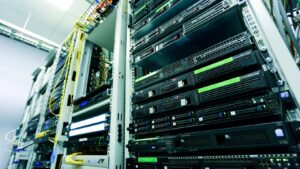Hub Connection
 In today’s digital age, seamless connectivity is more crucial than ever. Hub connections play a pivotal role in ensuring devices communicate efficiently within a network. They act as central points, linking multiple devices and enabling smooth data transfer.
In today’s digital age, seamless connectivity is more crucial than ever. Hub connections play a pivotal role in ensuring devices communicate efficiently within a network. They act as central points, linking multiple devices and enabling smooth data transfer.
Understanding the importance of hub connections can significantly enhance network performance and reliability. Whether for home or business use, these hubs streamline operations, reduce latency, and support the growing demand for interconnected devices. Dive into the world of hub connections and discover how they can revolutionize your network infrastructure.
What Is A Hub Connection?
A hub connection acts as a central point in a local area network (LAN), allowing multiple devices to connect and communicate efficiently. It’s crucial for both small and large network setups, ensuring seamless data transfer between connected devices like computers, printers, and other peripherals.
The hub operates as a repeater in most cases, sending data packets to all devices in the network. This multichannel communication boosts network reliability and performance, reducing downtime and error rates.
In modern networks, hubs have mostly been replaced by switches due to their efficiency in managing data traffic. However, hubs remain relevant in specific scenarios where simple data broadcasting is needed without complex processing.
Overall, a hub connection simplifies the network architecture, ensuring devices are interconnected. It plays a pivotal role in network functionality by facilitating straightforward communication between hardware components.
Types Of Hub Connections
Hub connections come in various forms, catering to different network needs. Wired and wireless hubs offer distinct advantages depending on the use case and environment.
Wired Hub Connections
Wired hub connections are the most traditional form. These hubs connect devices using Ethernet cables, ensuring stable and reliable data transfer. They are ideal for environments where network stability and speed are crucial, such as offices and data centers.
- Ethernet Hubs: Commonly used in local area networks (LAN), Ethernet hubs connect multiple Ethernet devices, functioning as repeaters.
- Active Hubs: These hubs amplify the signal before forwarding it to connected devices, which helps in maintaining signal strength over longer distances.
- Passive Hubs: They do not amplify the incoming signal but merely distribute it to connected devices. Suitable for short-distance communication.
Wireless Hub Connections
Wireless hub connections use radio waves for data transmission, eliminating the need for physical cables. They provide flexibility and mobility, making them suitable for dynamic and less permanent setups.
- Wi-Fi Hubs: These hubs allow devices to connect to a network wirelessly, supporting various Wi-Fi standards like 802.11ac for better speed and range.
- Bluetooth Hubs: Often used for connecting peripheral devices like keyboards and headphones, Bluetooth hubs ensure low-power and short-range communication.
- Cellular Hubs: Useful in remote locations, these hubs connect devices using cellular networks, enabling internet access where traditional wired connections are unavailable.
Advantages Of Hub Connections
Hub connections offer multiple benefits that enhance the overall functionality and performance of a network. They improve network efficiency and provide cost-effective solutions for various environments.
Network Efficiency
Hub connections significantly boost network efficiency by acting as central points for data distribution. They allow multiple devices to communicate seamlessly within a local area network (LAN). Hubs reduce latency by ensuring data packets are swiftly broadcasted to all connected devices. Even though modern networks often employ switches, hubs still serve vital roles in simpler setups. Examples include small offices or home networks where straightforward data broadcasting is needed. By facilitating efficient data transfer, hubs maintain network stability and optimize device communication.
Cost-Effectiveness
 Hub connections present cost-effective solutions, especially for budget-conscious environments. Compared to switches, hubs are generally less expensive, making them ideal for networks where advanced traffic management isn’t necessary. Setting up a hub requires minimal configuration, which reduces implementation costs. Additionally, hubs can support various devices without the need for complex setups, further lowering expenses. For example, small businesses and educational institutions often leverage hubs to manage tight budgets efficiently while maintaining reliable network performance. By providing a straightforward, budget-friendly networking option, hubs enable organizations to allocate resources effectively.
Hub connections present cost-effective solutions, especially for budget-conscious environments. Compared to switches, hubs are generally less expensive, making them ideal for networks where advanced traffic management isn’t necessary. Setting up a hub requires minimal configuration, which reduces implementation costs. Additionally, hubs can support various devices without the need for complex setups, further lowering expenses. For example, small businesses and educational institutions often leverage hubs to manage tight budgets efficiently while maintaining reliable network performance. By providing a straightforward, budget-friendly networking option, hubs enable organizations to allocate resources effectively.



